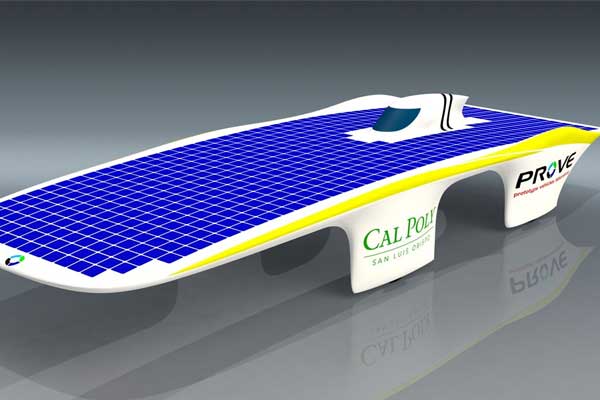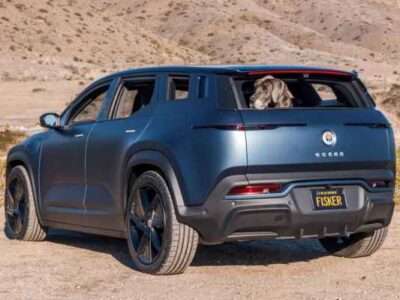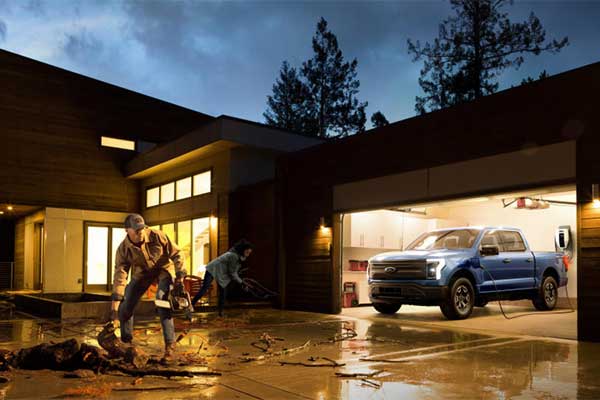Students from Cal Poly’s Prototype Vehicles Laboratory (PROVE Lab) have their sights set on breaking the international land speed record for solar vehicles – without batteries.
The PROVE team believe they can achieve a speed just shy of 105 kilometres per hour; 13 kilometres per hour faster than the current Guinness World Record. This will be achieved without any sort of energy storage and relying entirely on solar power.
Running on the energy equivalent of that used by a hair dryer, the car is light enough that two people can pick up and carry the vehicle. Lightweight doesn’t mean flimsy though, with the carbon fibre material used for the shell being four times stronger than steel.
The chassis is comprised of carbon fibre sandwich panels with a 13mm aluminium hex core, making it “virtually indestructible”.
The team claims the vehicle to be one the most aerodynamic vehicles ever designed; with just 11 pounds of aerodynamic drag experienced when travelling at top speed.
“No vehicle has ever been specifically designed from scratch to break this record,” states the PROVE team website.
” Our vehicle has to be lighter, leaner, and more powerful than previous record holders which were designed for solar racing competitions, compromised by pesky rules and regulations – limitations. We’re free of the box.”
The 600 monocrystalline solar cells powering the car are available commercially. The cells have an efficiency of 24% and collectively represent 2kW capacity.
“These cells are just like the ones you can get on your roof, and they’re making this car fast enough to get a speeding ticket on the freeway,” said Christiana Ushana, a member of PROVE’s software engineering team.
Propelling the vehicle are highly efficient bi-directional hub motors with curved magnets that magnify torque.
Cal Poly’s Prototype Vehicles Laboratory is a student- led organization and 60 students are involved with the project. PROVE Lab has partnered with a number of engineering and energy companies worldwide in order to bring the project to fruition.
Construction of the 6-metre-long PROVE car is already under way. The record attempt is scheduled for June 2017 and will take place in California’s Mojave Desert.



















Comments